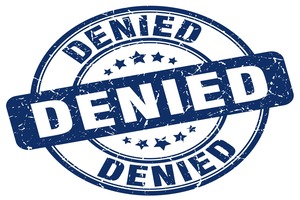Unmanageable debt is something that can hit those that make minimum wage and those that are considered high-income earners. It can affect small businesses, large corporations, investors and entrepreneurs. Bankruptcy is a place where they can turn to get things back under control, but there are four chapters that apply to individuals and businesses: Chapter 7, 11, 12 and 13.
For the average Florida resident, there are a couple types that can be immediately eliminated. Chapter 12 is applicable to family farms and not used as often. Chapter 11 applies to businesses and corporations, while this is a widely used type; it is not for personal bankruptcy. That leaves us with Chapter 7 — which is known as the liquidation bankruptcy — and Chapter 13 — which is known as the reorganization bankruptcy.
Chapter 7 is considered the liquidation bankruptcy, because a debtor puts their assets up for review from the bankruptcy trustee who can decide to sell them to satisfy as much debt as possible. An individual then walks away with a discharge of their debt — meaning that they no longer are under an obligation for it. While assets can be liquidated, there are certain exceptions, including ones that you petition to exclude.
An exemption from liquidation can include practical items like a vehicle you wish to keep. It is difficult to make a living after exiting bankruptcy if you can’t get to your job — let alone all the other things you use your car for on a daily basis. Something like a motor vehicle can be petitioned to keep out of the liquidation process.
Aside from the practical exclusions that are necessary for everyday life, there are some that are absolutely necessary for your future. Take for example retirement accounts. If these were taken from you during bankruptcy it would make the future more difficult, not less. This is why IRS-recognized retirement accounts like 401(k)’s or IRA’s, an individual can exempt them in this process 100 percent.
Which debts will be put up for liquidation and which ones will be exempted takes planning. An attorney experienced in these types of filings has seen it all and can help make these decisions fit for the individual’s personal situations. In our next post, we’ll cover Chapter 13 bankruptcies.
Source: Reporter, “Understanding how bankruptcy works,” Jan. 16, 2013
If you want to learn more about the bankruptcy process in Florida, our law firm has extensive experience in helping individuals and families get the fresh start that they need.



























![Signs That You May Need to File Bankruptcy [Infographic]](https://www.attorneyfortampabay.com/wp-content/uploads/2021/01/signs-chap7-v-chap13.jpg)
![How To File for Bankruptcy [Infographic]](https://www.attorneyfortampabay.com/wp-content/uploads/2020/07/bankruptcy-steps-infographic-web.jpg)















